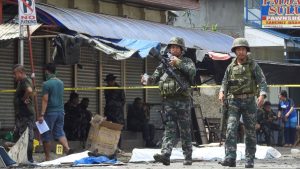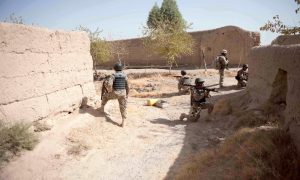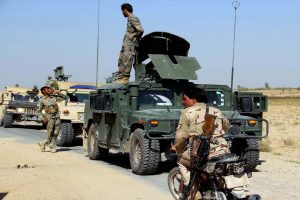The National Defence Security and Afghanistan National Army (ANA) are combing certain hot spots to flush out terrorists. An operation at Mirza Khel in Khogyani district led to the killing of 31 militants, asianlite.com. Sources said the toll includes 18 Afghan Taliban and 13 Pakistani militants belonging to Jaish-e-Mohammed. These miltants were affiliated to Maulsvi Sohail based at Khogyani. A miltant has been captured alive who is reportedly from JeM.
The violence against Afghan civilians and troops are on the rise in recent past. At least 250 Afghan security force members were killed and over 300 others injured in 220 attacks carried out by the Taliban in the past three weeks in the 11 provinces of the country.
The TOLO News report said the majority of casualties among the government forces occurred in the north and southeast regions of the country.
Under the US-Taliban peace agreement which was signed in Doha on February 29, the Taliban committed to not stage attacks on the key highways and provincial capitals. However, over the recent days, Zabul-Kandahar, Baghlan-Samangan and Kabul-Nangarhar highways have witnessed massive attacks, said the TOLO News report. Of the 11 provinces, Kunduz has witnessed heavy clashes.
In another development, a report submitted to the United Nations Security Council indicates that the total number of “Pakistani foreign terrorist fighters” in Afghanistan is estimated at “between 6,000 and 6,500, most of them with Jaesh-e-Mohammed and Tehrik-e-Taliban Pakistan (TTP).’
The presence of Pakistani militants in Afghanistan will put the Islamic republic in a tight spot over their commitments to Financial Action Task Force (FATF), which clearly ordered Pakistan to disassociate from all sort of terror funding and terror activities.
The FATF plays a crucial role in combatting terrorism. It sets global standards to combat terrorist financing, assisting jurisdictions in implementing financial provisions of the United Nations Security Council resolutions on terrorism, and evaluating countries’ ability to prevent, detect, investigate and prosecute the financing of terrorism.
The report says the TTP fighters in Afghanistan are led by Amir Noor Wali Mehsud, supported by his deputy Qari Amjad and TTP spokesperson Mohammad Khorasani, Tolo news reported.
The report says that according to UN member states, “Al Qaeda is covertly active in 12 Afghan provinces and Aiman al-Zawahiri remains based in the country.”
The report says that the UN Monitoring Team estimates the total number of Al Qaeda fighters in Afghanistan at “between 400 and 600 and that the leadership maintains close contact with the Haqqani network.”
In February 2020, “al-Zawahiri met with Yahya Haqqani, the primary Haqqani Network contact with Al Qaeda since mid-2009, to discuss ongoing cooperation,” the report said.
The report says that according to Member States, the Eastern Turkistan Islamic Movement (ETIM), presence in Afghanistan is mainly in Badakhshan, Kunduz and Takhar Provinces.
Approximately “500 fighters of the group operate in Badakhshan, primarily in Raghistan and Warduj Districts,” the report says.
The report says Daesh has suffered further severe reverses in its former Afghan strongholds of Nangarhar and Kunar provinces, but it is too soon to discount it as a threat.
Although in territorial retreat, Daesh remains capable of carrying out high-profile attacks in various parts of the country, including Kabul, the report says.
Daesh also aims to attract Taliban fighters who oppose the agreement with the United States, the report added, saying that in case of further military pressure on Daesh in Kunar, the group is expected to retreat to Badakhshan and other northern provinces.
A number of other terrorist groups are active in Afghanistan, most operating under the umbrella of the Taliban but some aligned with Daesh.
Al Qaeda in the Indian Subcontinent (AQIS) operates under the Taliban umbrella from Nimruz, Helmand and Kandahar provinces, the report says, adding that the group reportedly has between 150 and 200 members from Bangladesh, India, Myanmar and Pakistan.
The current leader of AQIS is Osama Mahmood, who succeeded the late Asim Umar. AQIS is reportedly planning retaliation operations in the region to avenge the death of its former leader, according to the report.












